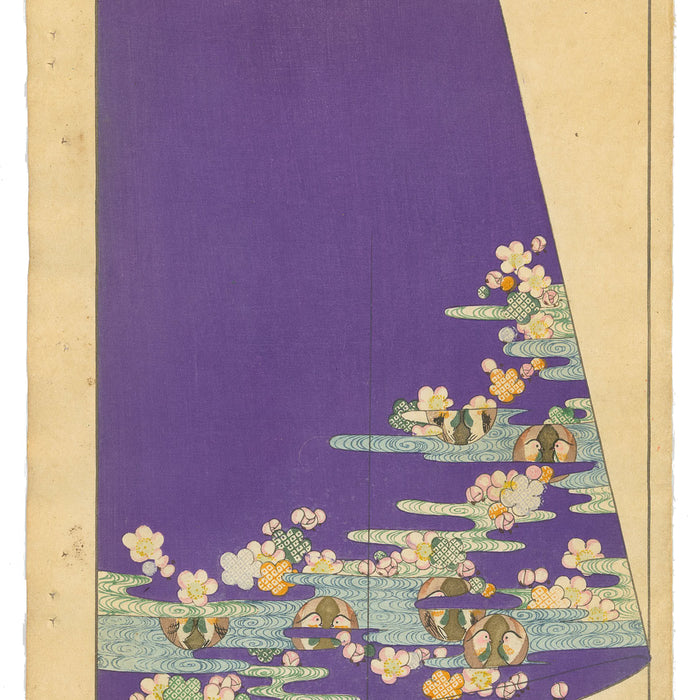
Mandarin Ducks
Mandarin ducks are associated with harmonious relationships and romantic love. In Japanese folklore, these ducks are believed to mate for life, so they are considered symbols of faithfulness, devotion, and marital bliss. On a young married woman’s kimono, this motif conveys wishes for a harmonious relationship and serves as a protective talisman for her and her spouse.


